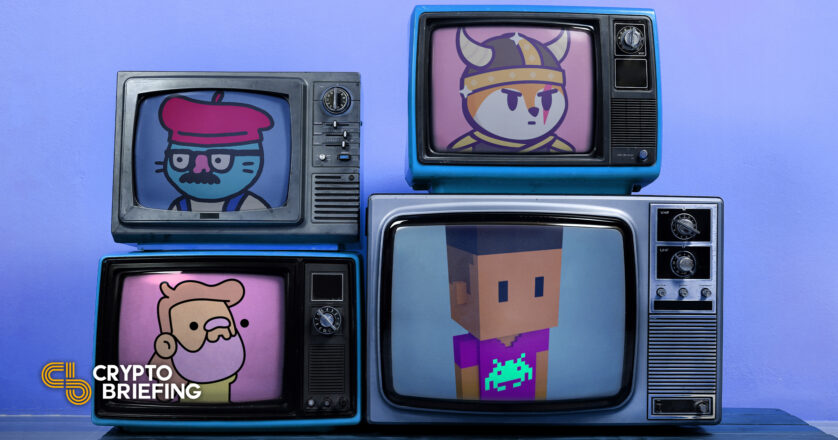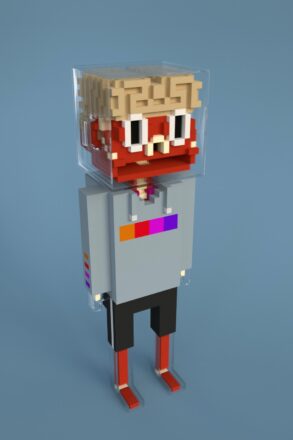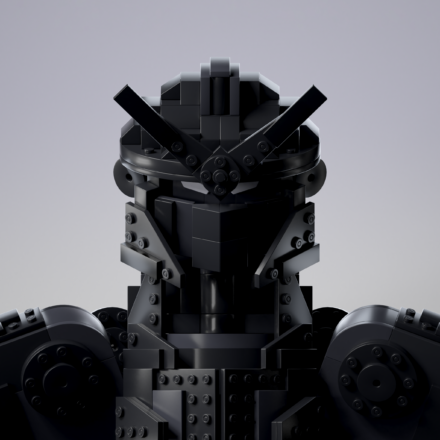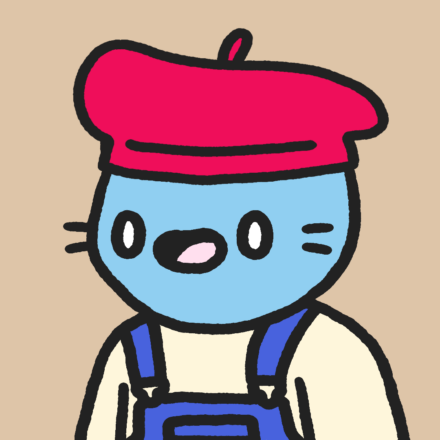Remember NFT Avatar Hype? These Are the Niche’s Top Five Failures
NFT avatar projects exploded as the technology went mainstream in 2021. Most of them failed to deliver.

Key Takeaways
- CryptoPunks-inspired NFT avatar projects saturated the market in 2021.
- While some collections have spawned vibrant communities, others have failed.
- Interest in many once-desired collections has waned due to slow development times and a lack of creativity.
Share this article
The NFT avatar scene has seen many projects soar and then fade into irrelevance over the past year.
The NFT Avatar Space
When NFT technology went mainstream in 2021, tokenized apes, lizards, skeletons, and other characters became hot property on blockchains like Ethereum and Solana. The rising demand for NFT avatars was fueled in part by the intrigue surrounding Ethereum’s first major avatar collection, CryptoPunks, and then it kicked up a gear after Bored Ape Yacht Club, now the world’s most important avatar collection, launched. People quickly realized that they would need to “wear” their own NFT on Twitter if they wanted to fit into Web3 circles, and suddenly everyone was talking about “community” as new projects doing much the same as their predecessors surfaced. After minting for the equivalent of around $200 in April 2021, Bored Ape Yacht Club’s floor price topped $430,000 a year later.
Bored Ape Yacht Club’s creator, Yuga Labs, scored a series of home runs with lucrative airdrops that enriched holders, major brand partnerships, celebrity endorsements, exclusive parties, and an ambitious Metaverse gaming project, but its success was an outlier in what became a saturated space. During peak NFT mania in August 2021, demand for NFT avatars that borrowed from the CryptoPunks template soared—helping prices rally. But the hype was short-lived, and many all but disappeared once the market retraced. This feature lists the NFT avatar scene’s five biggest disappointments to date.
Meebits

On paper, Meebits seemed like a no-brainer to the NFT market’s hungriest speculators. The second avatar project from CryptoPunks creator Larva Labs, Meebits promised a collection of 20,000 unique 3D voxel characters that could be adopted as a digital identity for exploring the Metaverse. As the successor to the most important Ethereum NFT collection at the time, the entire crypto space was talking about the launch when it was announced in May 2021. However, the excitement quickly turned to mockery. While Larva Labs was applauded for airdropping the new Meebits to CryptoPunks holders, it quickly became clear that the collection’s artwork quality paled compared to its elder sibling’s. Aside from the ugly designs, Meebits went live in a Dutch auction with bidding commencing at a hefty 2.5 ETH (over $8,000 at the time). It sold out within hours, banking Larva Labs around $80 million. Secondary trading soared as rarer pieces sold at wild valuations, but the hype soon died. Even when the floor price topped 9 ETH over NFT summer, it was clear that Larva Labs had no plan for the collection besides raking in eye-watering profits. The design studio was condemned for a series of blunders months later and went on to sell the rights to Meebits to Bored Ape Yacht Club’s Yuga Labs. Holders were immediately granted intellectual property rights to their characters, but as secondary trading shows, interest has waned since the peak. While CryptoPunks still hold prestige in the NFT space, maybe it’s fitting that Meebits is irrelevant now; Larva Labs evidently didn’t care about the crypto space, and the crypto space doesn’t care about Meebits.
Doodles

Though Doodles was a relatively late entrant to the NFT avatar scene, it looked like a winner from the offset, combining an iconic Simpsons-like aesthetic with world-class marketing in the lead-up to its mint. It quickly became a Twitter profile picture of choice among Ethereum NFT whales even as the broader market trended down, trailing other collections’ market cycles by a few months. At its peak, the entry price to Doodletown topped $68,000, but it soon crashed like most others before it. While Doodles still aren’t cheap, with a current floor price of about $12,000, they’ve suffered a slow bleed as reality about the project’s poor communications strategy and barely-there roadmap sets in. In June 2022, the team announced that it had appointed Pharrell Williams as a “chief brand officer” and closed a capital raise for an undisclosed sum, defying Web3’s transparent values. It also promised a new collection called Doodles 2, revealing it wouldn’t launch on Ethereum and teasing out a slick animated video. Doodles is currently running a vote for a “Triwizzy Tournament” celebrating creative talents in Web3, but the project has gone quiet on social media, last tweeting in late July. Loyal supporters will have to hope Pharrell and Doodles 2 can help the project return to its former glories.
MekaVerse

Arguably the NFT avatar space’s biggest letdown to date, MekaVerse had a spectacular rally leading to its launch in October 2021. As crypto hype neared its top, Forbes ran a puff piece interviewing the founders of “The NFT Project With 100k Discord Members In 48 Hours.” The 8,888 Mekas went live with an initial mint followed by an art reveal, and the floor price quickly topped $28,000 on the secondary market. However, the collection took a battering when it revealed its artwork, dropping a series of lazy Transformers-inspired designs that barely offered any distinguishable features to identify one from another. Memes abound as crypto enthusiasts joked that the collection was among the space’s least inspiring ever. Things got worse for the project as the team was accused of rigging its drop to help insiders nab the rarest tokens, something the creators vehemently denied. MekaVerse has since organized a new airdrop and promised some kind of Metaverse-style experience (MekaVerse in the Metaverse, get it?), but it’s fair to say that the collection has become irrelevant. As for the asking bid on one of the cookie cutter Mekas? You can grab one for around $420 today, a 98.5% drop from the peak.
Cool Cats

Shining a light on Cool Cats’ fall from grace probably won’t earn us any friends, but this is crypto; if you really believe this space is only about community, you might be as naive as Cool Cats’ biggest bag holders. There’s no better way to understand how crypto trading (and yes, NFT trading) is a zero-sum game than seeing one of your once-feted bags tank to near zero, and it probably wouldn’t be unfair to say that the Cool Cats community’s most ardent believers have had something of a reality check over the past few months. The cute Ethereum cats were going for over $40,000 in adverse conditions back in January—now, the floor price is over 90% down in dollar terms. It gets even worse when you check the chart for the collection’s MILK token, whose 99% decline could rival Terra’s LUNA (you know, the one that death spiraled to zero) for how bleak it looks. Community members have the team’s slow development times for its Cooltopia world to blame, and though it’s been promised that the current experience is “just the tip of the iceberg,” interest in the project across the broader space has all but waned. The NFT space’s cool cats are still minting JPEGs and tweeting each other to get through the enduring bear market, but they’re just not excited about Cool Cats anymore.
Famous Fox Federation

Famous Fox Federation makes the bold claim that it’s “the most famous NFT collection on Solana,” so it’s difficult to take it too seriously given that other collections like SolanaMonkeyBusiness and Degenerate Ape Academy have outperformed it on almost every metric. Famous Fox Federation has a relatively sizable 53,000 Twitter followers and is approaching 200,000 SOL in lifetime trading volume on OpenSea, but there’s a lot to question once you get past the raw data. Famous Fox Federation isn’t a failure because of any price drop or lack of market appeal—it’s just another example of a boring project that doesn’t offer anything in the way of originality. Like all of the worst NFT avatar collections, the foxes themselves look about as unique from one another as Andy Warhol’s Campbell’s Soup Cans, and the team has copied the Yuga playbook by launching a derivative airdrop and a token called FOXY (don’t ask us what it does or why anyone needs it). SOL enthusiasts can currently enter the Foxosphere for a relatively modest $1,300, and guess what? For those who still have cash left over, the team is selling a run of cheap-looking merch in exchange for USDC (because if you’ve fallen for the “community” vibes at this point, why not go the whole hog?) Alternatively, those interested in scoping out genuinely creative NFTs could dig through all of the amazing stuff happening in the generative art, photography, and digital art niches. Then again, if you’re one of those people, you probably wouldn’t have considered looking at avatars like Famous Fox Federation in the first place.
Disclosure: At the time of writing, the author of this piece owned some Otherside NFTs, ETH, and several other cryptocurrencies.
Share this article

